Besides bright spots, Vietnam's economy still has gray areas, according to experts at the Workshop on Analyzing the Current State of Vietnam's Economy in 2023 and Assessing the Economic Prospects in 2024, organized by the Vietnam Economic Institute on April 11.
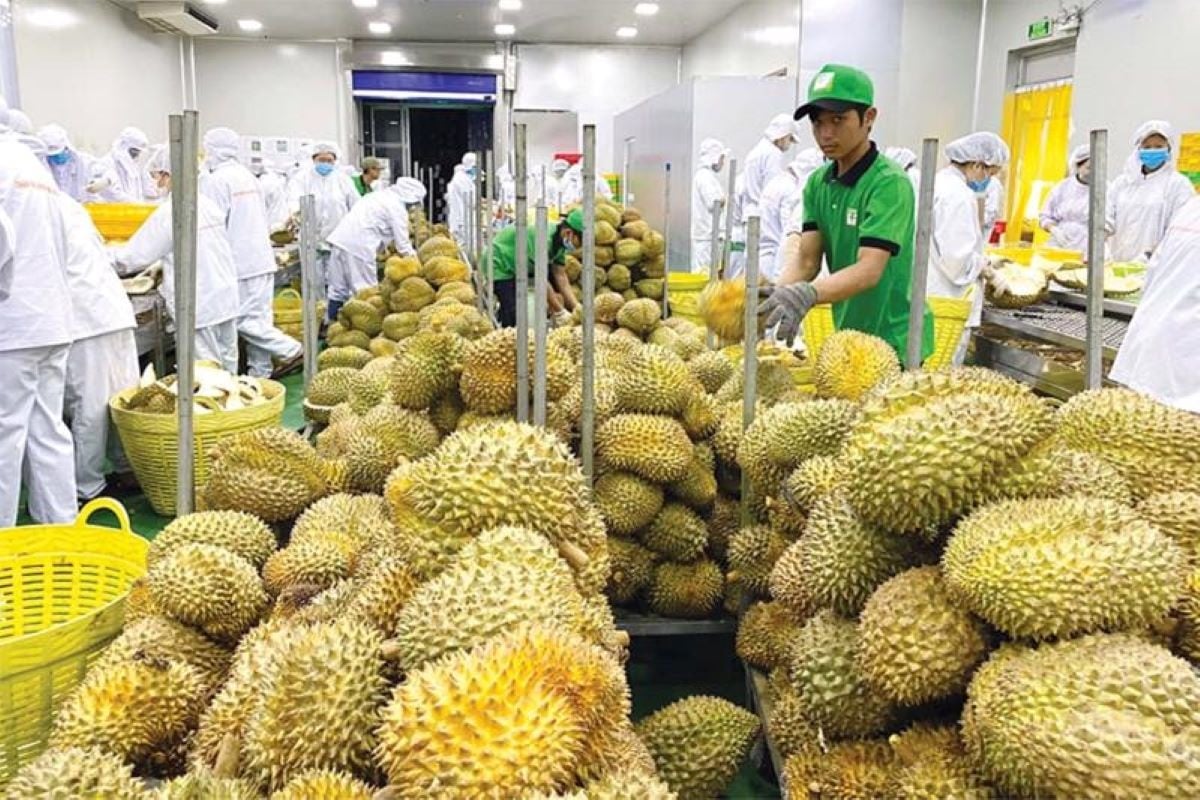 |
| The economy shows signs of recovery in the fields of trade, goods export, agriculture , public investment and foreign investment. |
Many bright spots, positive
“Through the statistics of the fourth quarter of 2023 and especially the first quarter of 2024, we can affirm that there are signs that the Vietnamese economy has recovered more than in 2023,” said Mr. Nguyen Quoc Viet - Deputy Director of the Institute for Economic and Policy Research, University of Economics (Vietnam National University, Hanoi ).
According to Mr. Viet, the recovery and bright spots clearly show that industrial production has grown very strongly. That recovery comes from the world's demand for Vietnamese goods recovering and the support from positive FDI capital flows in Vietnam. The next bright spot is that besides the above economic recovery signals in many aspects, Vietnam's macro stability compared to some countries in the region is relatively good, especially in terms of inflation and some major balances of the economy.
Another good and positive point is the trend of implementing public investment projects on schedule, especially key national projects associated with infrastructure connections and synchronous traffic infrastructure construction.
“It not only helps restore economic growth and supports short-term economic growth, but also supports the process of improving national competitiveness to anticipate new growth trends in the coming time,” said Mr. Viet.
Sharing about this issue, Dr. Vo Tri Thanh - Director of the Institute for Brand Strategy and Competition Research noted some data series: GDP growth in 2023 with the first quarter reaching 3.3%; 6 months is 3.7%; 9 months is 4.2%; the whole year is 5.1%, while the first quarter of 2024 reaches 5.66%.
“Signs of recovery can be seen in the fields of trade, goods export, agriculture, public investment and foreign investment,” Mr. Thanh added.
Interwoven "dark" points
However, according to Mr. Thanh, there are still many worrying signs such as private investment slowing down, even decreasing; the number of businesses withdrawing from the market is increasing, especially when this number is higher than the number of businesses entering the market.
Adding to the above opinion, Mr. Viet said that Vietnam's private investment is still below its growth potential and is on a downward trend, coupled with the difficulties of the economy in general and businesses in particular. The reason is that the Covid-19 period has eroded the competitiveness of businesses, especially domestic businesses, reflected in aspects such as the ability of businesses to recover and re-enter the economy being very difficult, as well as the withdrawal of businesses and the downsizing of Vietnamese businesses.
“In general, Vietnamese enterprises and a part of the informal economy or household economy in 2023 and especially in early 2024 will face many difficulties,” Mr. Thanh commented.
“All of these factors make us see a picture of a decline in growth rate and domestic consumption demand. This is a consequence of the decline in income and employment in previous years, leading to people having to have a defensive mentality of tightening their belts,” Mr. Viet stated his opinion.
Citing evidence of the decline in internal capacity, this expert cited that 2023 is the first year in 10 years that Vietnam's personal income tax increase has not been as high as in previous years.
“This issue has also been reflected in consumption at the end of 2023 and in the first quarter of 2024,” Mr. Viet said.
Another development is that in the first quarter, the indicators of macroeconomic stability seem to be relatively good, especially the issue of inflation. However, indicators and signs show that inflationary pressure may increase in the following quarters, especially towards the end of the year.
Suggests urgent actions
Regarding the policy vision for 2024, Dr. Vo Tri Thanh said that if the focus in 2023 is on stabilizing the macro economy, supporting recovery and growth, 2024 must be on promoting growth associated with stabilizing the macro economy.
Sharing the same view, Mr. Le Xuan Sang - Deputy Director of the Vietnam Economic Institute suggested some solutions as in the context that there will be many uncertain factors, need to be resolved due to the real estate market, corporate bonds. According to him, this is a prerequisite for sustainable economic recovery. Along with that, efforts and policy will in institutional reform, especially related to real estate and public investment also play an equally important role.
“We need to promote an effective operating apparatus, daring to do and contribute, daring to innovate, and creating development in a changing world,” said Mr. Sang.
Mr. Nguyen Quoc Viet said that Vietnam still needs to continue policies to support consumer demand stimulation, especially the VAT reduction policy that needs to be considered to extend until the end of this year. In addition, the story needs to continue to be discussed and consistently put forward policies that are announced early, timely and certain, from which the business community can rely on forecasts and evaluate policies in a systematic way to adjust their business plans accordingly.
Source link



![[Photo] Panorama of the Opening Ceremony of the 43rd Nhan Dan Newspaper National Table Tennis Championship](https://vphoto.vietnam.vn/thumb/1200x675/vietnam/resource/IMAGE/2025/5/19/5e22950340b941309280448198bcf1d9)

![[Photo] Close-up of Tang Long Bridge, Thu Duc City after repairing rutting](https://vphoto.vietnam.vn/thumb/1200x675/vietnam/resource/IMAGE/2025/5/19/086736d9d11f43198f5bd8d78df9bd41)
![[Photo] President Luong Cuong presents the 40-year Party membership badge to Chief of the Office of the President Le Khanh Hai](https://vphoto.vietnam.vn/thumb/1200x675/vietnam/resource/IMAGE/2025/5/19/a22bc55dd7bf4a2ab7e3958d32282c15)
![[Photo] General Secretary To Lam attends the conference to review 10 years of implementing Directive No. 05 of the Politburo and evaluate the results of implementing Regulation No. 09 of the Central Public Security Party Committee.](https://vphoto.vietnam.vn/thumb/1200x675/vietnam/resource/IMAGE/2025/5/19/2f44458c655a4403acd7929dbbfa5039)
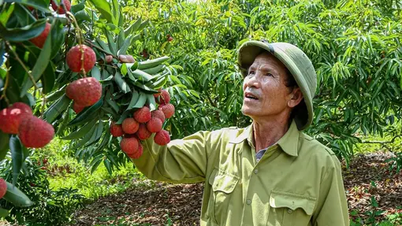












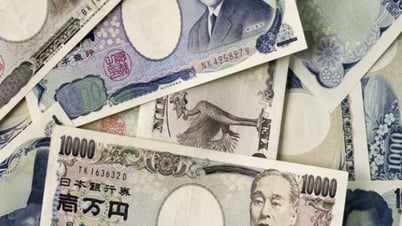


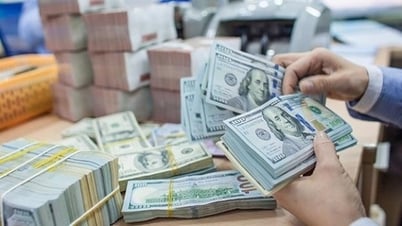










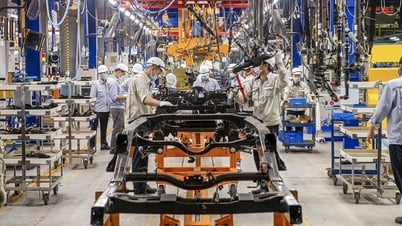
![[Photo] Prime Minister Pham Minh Chinh inspects the progress of the National Exhibition and Fair Center project](https://vphoto.vietnam.vn/thumb/1200x675/vietnam/resource/IMAGE/2025/5/19/35189ac8807140d897ad2b7d2583fbae)





























































![[VIDEO] - Enhancing the value of Quang Nam OCOP products through trade connections](https://vphoto.vietnam.vn/thumb/402x226/vietnam/resource/IMAGE/2025/5/17/5be5b5fff1f14914986fad159097a677)



Comment (0)